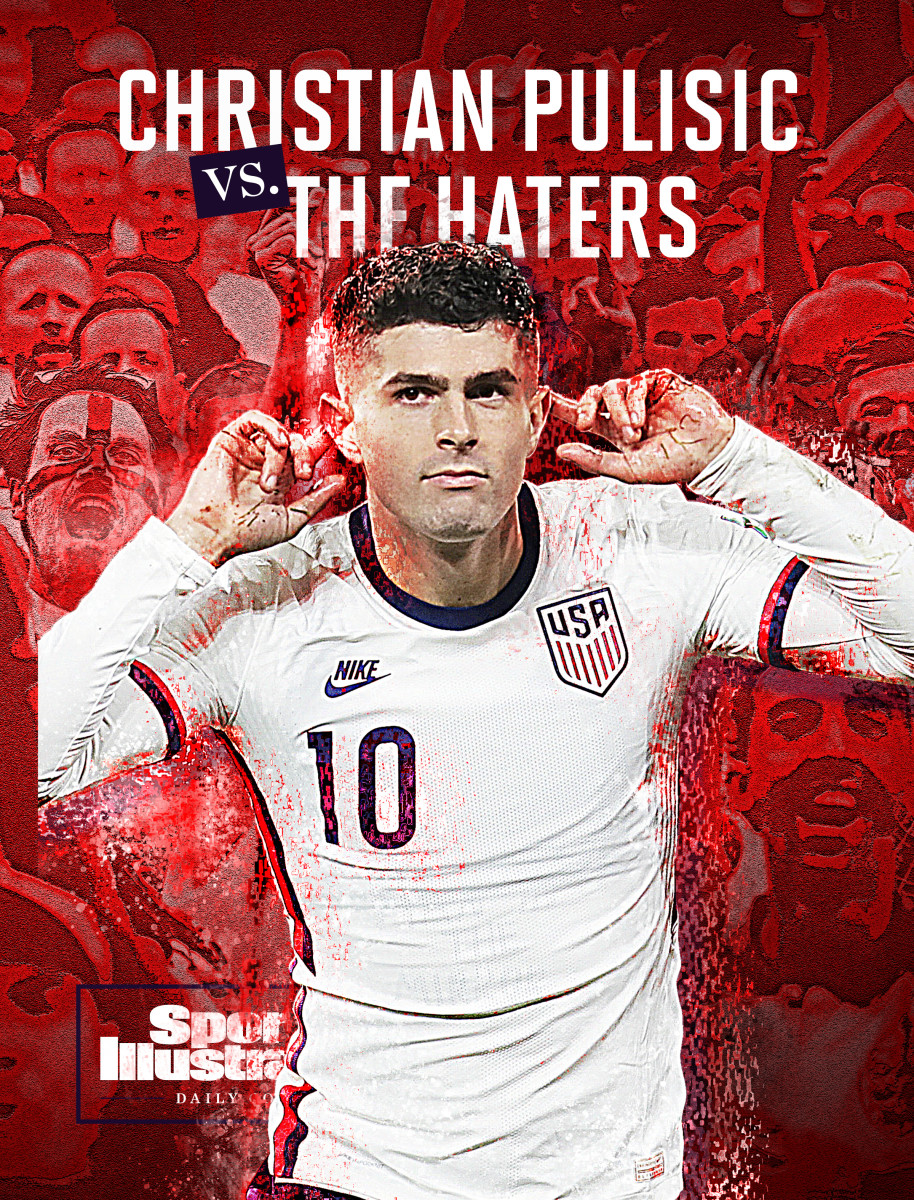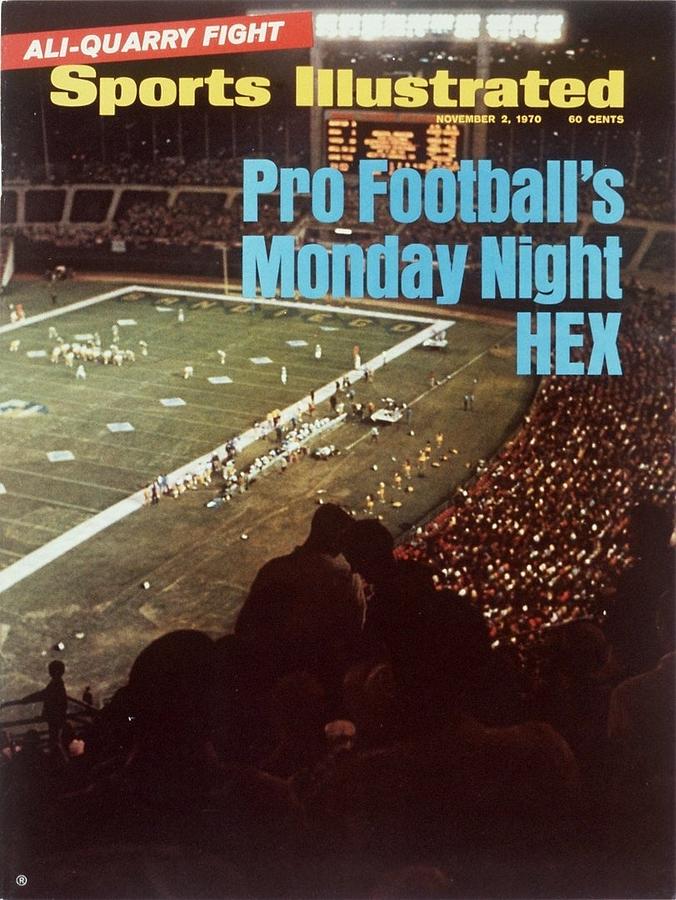SI:AM | The Phillies Bombed Their Way to Victory in Game 3
Good morning, I’m Dan Gartland. I’m starting to think the Phillies might be able to pull this off.
In today’s SI:AM:
🔔 The Phillies punish McCullers
🤦♂️ The Nets’ latest bad idea
If you're reading this on SI.com, you can sign up to get this free newsletter in your inbox each weekday at SI.com/newsletters.
The Phillies are giving the Astros everything they can handle
Astros starter Lance McCullers Jr. got knocked around so badly in Game 3 of the World Series last night that fans thought he must have been doing something catastrophically wrong. He had to have been tipping his pitches, right? No, Tom Verducci writes:
Run with it if you like. But here’s what really happened at Citizens Bank Park Tuesday night: McCullers threw 82% of his pitches in the narrow range of 82 to 89 miles per hour. Eighty-two percent. McCullers can throw as hard as 96 miles per hour, but he uses his fastball like a demitasse spoon, which is to say only on special occasions.
The Phillies knew this coming in. They could sit soft all night. With the Phillies adopting that approach, McCullers was never going to get them off balance. The best he could do was execute at a high level, which means breaking off nothing but nasty sliders, curves and changeups. But whenever he left his soft stuff in the strike zone—against a red-hot offense that’s cranked out seven runs per game while going 6–0 at home during the postseason—you watched Fireworks Night at the ballpark.
With that game plan in mind, Phillies hitters punished McCullers to the tune of five home runs in their 7–0 victory. (He’s the only pitcher to give up five homers in a World Series game.) Bryce Harper hit one on the very first pitch he saw at Citizens Bank Park since his dramatic eighth-inning home run of the NLCS clincher. Alec Bohm and Brandon Marsh followed suit in the second inning. In the fifth, Kyle Schwarber and Rhys Hoskins went back-to-back. (Schwarber’s was the most impressive of the night, a rare no-doubter to dead center field.)
“I got whooped,” McCullers said. “End of story. ... This had nothing to do with tipping. I was out there. They beat me. They beat us.”
With all those dingers, it’s easy to overlook the other side of the ball, but the Phillies’ pitching was just as impressive. Starter Ranger Suárez allowed just three hits in five shutout innings and then handed it over to the bullpen. Relievers Connor Brogdon, Kyle Gibson, Nick Nelson and Andrew Bellatti allowed a combined four base runners. You’ll notice that those four are not among the Phillies’ most important relievers. Pitching is Houston’s biggest advantage over Philadelphia, but with the big lead staked to them by all those homers, the Phillies didn’t have to turn to the guys they need in high-leverage situations. It won Game 3, and it set the Phillies up well for the rest of the series, Emma Baccellieri writes:
It feels like a potential inflection point. If the mismatched pitching depth seemed like a key to the series a few days ago, well, now it barely feels real. Some of that is luck: Monday’s rainout couldn’t have come at a better time for the Phillies, allowing them to use Suárez in Game 3 rather than Game 4, which meant pushing an expected bullpen day back to Game 5. There’s also the fact that Astros manager Dusty Baker has been puzzlingly late to turn to his own talented relievers. (A depth advantage isn’t very useful if a team doesn’t actually use it.) Yet the rest is simply performance. Yes, Philly’s hitters gave the back end of their bullpen an impressive, sizable lead on Tuesday. But that group did more than simply protect that lead. They kept the game a shutout—which falls partially on the Astros’ hitters, of course, but it’s also a credit to the Phillies’ ’pen. If there’s supposed to be a lack of depth here? No one told them.
The Phillies’ best relievers (José Alvarado, Seranthony Domínguez and David Robertson) are well-rested headed into Game 4 tonight, which is great news for them. It’ll be all hands on deck to try to push the series advantage to 3–1.
The best of Sports Illustrated

In today’s Daily Cover, John Gonzalez looks at the rocky Premier League career of Christian Pulisic, the guy the USMNT will be leaning on in the World Cup:
The Brits love dunking on Pulisic—even when things go well for him, which has been admittedly rare of late. Pulisic started against Wolves a few days after he went MIA against Milan, played 72 minutes and scored a goal after a brilliant bit of give-and-go with Mason Mount. It was easily his best outing in ages, and the only time he’s found the back of the net in 11 matches so far for Chelsea this season.
Another surprising development for the Phillies, Stephanie Apstein writes, has been Nick Castellanos’s defense. … Michael Rosenberg writes that Ime Udoka “is perhaps the candidate least equipped to create the culture of accountability that the Nets so desperately need.” … Rohan Nadkarni also took the Nets to task for considering hiring Udoka. … Richard Johnson has a list of candidates Auburn should target for its newly vacant football coaching job. … These are the five lineups that have been the most surprising to Chris Herring this NBA season. … Here are our grades for the biggest deals at the NFL trade deadline. … These are the matchups, spreads and odds for SI Sportsbook’s Perfect 10 contest for Week 9.
Around the sports world
Kyrie Irving didn’t speak to the media last night. Nets GM Sean Marks said the team wants to wait for him to “simmer down.” … Kevin Durant said he was “shocked” to hear that Steve Nash, the guy he wanted fired during the summer, had been fired. … Tennessee claimed the No. 1 spot in the first College Football Playoff rankings of the season. … A week after benching Matt Ryan, the Colts have fired their offensive coordinator. … Qatar will pay up to 1,600 fans to attend the World Cup for PR purposes. … Two Philadelphia restaurants say they denied catering orders from the Astros. … Former Chiefs assistant Britt Reid was sentenced to three years in prison after pleading guilty to driving while intoxicated in a crash that injured a child. … Michigan State has suspended four more players after the tunnel incident with Michigan over the weekend.
The top five...
… things I saw yesterday:
5. Pierre-Emile Højbjerg’s game-winner for Tottenham late in stoppage time to clinch the top spot in its Champions League group.
4. Sharks defenseman Erik Karlsson’s first career NHL hat trick, capped by a late goal with the San Jose’s net empty to force overtime.
3. Cam Johnson’s seven three-pointers for the Suns.
2. Hampus Lindholm’s coast-to-coast overtime game-winner for the Bruins.
1. This dunk by UAB’s Eric Gaines in a preseason scrimmage.
SIQ
On this day in 1990, the Suns and Jazz opened their seasons by playing the first regular-season games outside North America for any major U.S. sports league. Where did they play?
- London
- Paris
- Beijing
- Tokyo
Yesterday’s SIQ: On Nov. 1, 2003, Larry Fitzgerald broke an NCAA record by catching a touchdown pass in his 14th consecutive game. Who held the record before him?
- Randy Moss
- Tim Brown
- Desmond Howard
- Charles Rogers
Answer: Charles Rogers. He had set the record just a year earlier, in Michigan State’s 39–24 win over Northwestern on Sept. 28, 2002. Before Rogers caught a touchdown pass in his 13th straight regular-season game, the record was held by Michigan’s Desmond Howard, Marshall’s Randy Moss and Pacific’s Aaron Turner. (Michael Rosenberg wrote a good piece about Rogers after he died in ’19 at 38.)
Fitzgerald put the record out of reach in his otherworldly redshirt sophomore season for Pitt in 2003, running his streak to 18 games before it was snapped in the Panthers’ bowl game against Virginia.
Fitzgerald’s 2003 stats are just silly. In 13 games, he caught 92 passes for 1,672 yards and 22 touchdowns—even playing against double- and triple-coverage. Those numbers weren’t good enough for Heisman voters, though, who gave the award to Oklahoma quarterback Jason White. Fitzgerald finished second.
From the Vault: Nov. 2, 1970

American society was turned upside down in the fall of 1970. For the first time, there was nationally televised NFL football every Monday night.
The league had experimented with holding Monday-night games in the past, but 1970 was the year that Monday Night Football launched on ABC. It was a runaway success—at least for ABC. Other businesses in the U.S.? Not so much.
Writing with just a bit of tongue-in-cheek panic, Robert H. Boyle’s SI cover story detailed all the ways that the new night of football was wreaking havoc across the country. “Monday, traditionally the worst night for movie attendance, has become a disaster as a result of the TV game,” Boyle wrote. (The drop-off in theater attendance was worst for those showing pornography, “which attract male members of the middle class,” Boyle added.) People weren’t going out to bars and restaurants, either.
It may seem extreme, but it isn’t outlandish to believe that the availability of NFL football on a weeknight could have such an effect on American culture. After all, an average of 35 million people tuned in to watch the games. That’s roughly 17% of the American population at the time. (Compare that to the 14 million average viewership MNF is drawing this season, or 4.2% of the population.) Now, it’s exceedingly unlikely that all 35 million of them would have been out at bars, restaurants, movie theaters and bowling alleys on Monday nights if not for MNF, but it’s still incredible that one out of every six Americans was watching the NFL every Monday night.
The new schedule was an adjustment for players, too. Boyle’s story points out that most teams that played on Monday night played poorly the following Sunday, which was a boon for observant bettors.
“What made our Monday night game with Baltimore unusually tough was that it was a night game played on the East Coast,” Chiefs defensive end Jerry Mays told Boyle. “We didn’t get back home until about 3 a.m. Tuesday, and Wednesday didn’t feel all that good. The effect was not so much to cut our preparation time for the Denver game from seven to six days as it was to cut it from seven to 5½ days.”
Just be glad you didn’t have to play on Thursday Night Football, Jerry.
Check out more of SI’s archives and historic images at vault.si.com.
Sports Illustrated may receive compensation for some links to products and services on this website.
